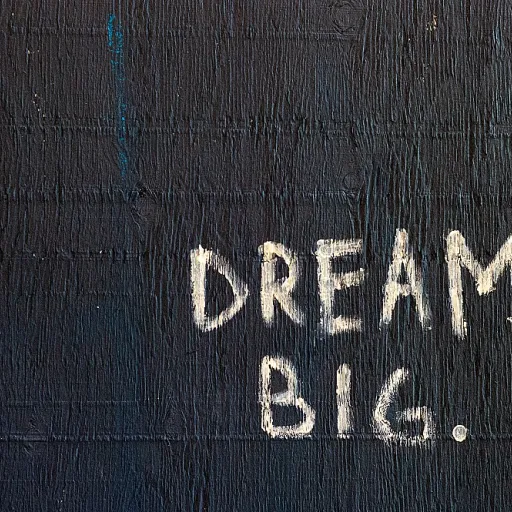
The Role of Work Ethic Descriptors in HR
The Importance of Work Ethic in Human Resources
In the world of human resources, work ethic descriptors play a fundamental role in understanding and developing a productive workforce. Work ethic isn't just about the energy employees bring to the table; it is about how their values align with the company's goals. In a resume, adjectives like 'strong work ethic,' 'hard worker,' or 'reliable' help to convey a candidate's commitment and values to potential employers. Incorporating these descriptors in job descriptions and during team evaluations assists managers in setting clear expectations. It's crucial to distinguish between quality traits and those less desired, such as poor work attitudes. Including specific examples, such as consistent punctuality or strong time management, highlights the desired attributes. For HR professionals, understanding these nuances aids in the development of company culture and enhances the recruiting process. Establishing a common language around work ethic helps in aligning employees’ and employers’ expectations. As job requirements vary across industries, tailoring these descriptors can refine the selection process to better reflect a company’s ethos. Moreover, consistent communication regarding what constitutes a strong work ethic fosters an environment where achievements and skills are recognized. HR is tasked with cultivating a culture where descriptions of work include adjectives that resonate with both employees and the organization’s values. By doing this, HR ensures that everyone works towards a common goal in unison. As businesses continue to evolve, recognizing and defining these work ethic descriptors becomes increasingly important. It is a dynamic force that shapes how employees engage with their tasks and develops their problem-solving skills. To further explore the diverse roles within HR, including career paths such as in ombudsman roles, take a look at this exploration of career paths.Common Work Ethic Descriptors and Their Meanings
Decoding Common Workplace Descriptors
In the realm of human resources, work ethic descriptors play a crucial role in identifying and nurturing talent within a company. These descriptors serve as a guide for both employers and employees in evaluating overall job performance. Understanding the specific language used in these descriptors can significantly enhance the clarity and effectiveness of internal communications. ### Key Descriptors and Meanings- Hard Worker: This describes an employee who consistently goes above and beyond in their job responsibilities. They manage their tasks efficiently and are a pivotal part of the team. Their strong dedication often reflects positively on their work experience and contributes to key company achievements.
- Time Management: This term is particularly crucial in evaluating an employee’s ability to prioritize tasks effectively. Employees exhibiting excellent time management skills often achieve high productivity levels and meet or exceed company standards.
- Problem Solving: Employees with robust problem-solving skills are valued highly within any company. These individuals are adept at navigating challenges, ensuring smooth operations, and maintaining strong customer relationships.
- Team Player: A team-centric approach is vital in fostering a collaborative company culture. Employees identified as team players contribute to a positive work environment, enhancing mutual support and achieving group goals.
- Customer Focused: Employees described as customer-focused are critical for enhancing company reputation and client retention. They work diligently to meet customer needs and maintain high service quality.
Communicating Work Ethic Expectations
Expressing Work Ethic through Clear Expectations
Communicating work ethic expectations effectively within a company is crucial for fostering a strong work ethic among employees. A precise articulation of these expectations not only aligns the team with the company's vision but also enhances overall productivity. The use of resumes often provides insight into an individual's work ethic through adjectives that highlight their skills and achievements. Ensure that the job description contains specific adjectives that define desired qualities. Phrases like "consistent time management" or "strong customer-focused approach" are not just resume adjectives—they set the tone for what the company values in an employee. For instance, describing a candidate as a "hard worker" goes beyond a mere ethic resume descriptor; it complements concrete examples of their work experience and problem-solving skills. Adjectives that describe work ethic such as "dedicated" or "reliable" can be communicated in performance reviews and team meetings. Management skills should also include bringing attention to both positive and poor work performance, thus developing a culture of continuous improvement. Consistently reinforcing these expectations, through informal feedback and formal evaluations, helps employees internalize and exhibit strong work ethic traits over time. By using examples and maintaining a dialogue about what these adjectives mean in practice, companies can encourage employees to describe their achievements and contributions more effectively. This process can nurture employees’ growth and align their efforts with organizational objectives. Explore more about navigating these challenges in HR training processes at Navigating Challenges in the HR Training Process.Challenges in Defining Work Ethic Descriptors
Complex Challenges in Defining Work Ethic Descriptors
Navigating the complexities of defining work ethic descriptors can be quite the challenge for companies. As employers seek to describe an ideal employee's strong work ethic on paper, various hurdles surface, often leading to undefined expectations in job descriptions. Firstly, work ethic descriptors often rely on subjective language, such as adjectives like "hard worker" or "consistently timely," leaving room for interpretation. What one company might consider a strong work ethic might appear differently for another, especially when variations in company culture come into play. This ambiguity complicates the creation of universally understood, clear measures of work ethic. Additionally, the resume is quite a battleground for work ethic descriptors. When browsing through candidates’ resumes, HR professionals frequently encounter adjectives that describe work experience and management skills, such as "problem-solving" and "team player." However, these adjectives can vary significantly in meaning without concrete examples to back them up, leading to inconsistencies in evaluation. The challenge becomes further compounded with considerations of cultural influences. A thick layer of difficulty arises when aligning work ethic expectations with a diverse workforce that embodies varying cultural perspectives on work quality and time management. For some, strong work ethic revolves around daily achievements; for others, it can translate to working effectively under time constraints. As companies strive to clearly communicate expectations of employees in resumes and company culture guidelines, recognizing these challenges is crucial. Implementing structured definitions and examples within job descriptions can mitigate these challenges, offering managers and employees tangible guidelines and expectations. Ultimately, as HR continues to develop in tackling these challenges, a consistent approach will facilitate a clearer evaluation of work ethic across the board.Cultural Influences on Work Ethic Perceptions
Influences of Culture on Work Ethic Evaluation
Understanding work ethic descriptors requires a deep dive into cultural nuances. Different cultures have varying perspectives on what constitutes strong work ethic, and this significantly affects how adjectives are perceived and applied in HR contexts. For instance, while punctuality might be a paramount measure of a good work ethic in some cultures, others might prioritize teamwork and interpersonal skills.- Adjectives Highlight Cultural Differences: Adjectives used in resumes to describe work qualities can vary widely. In cultures where individual achievements are celebrated, descriptors like "strong problem-solving" or "consistently exceeds targets" may be favored. Conversely, in cultures that value collective success, adjectives emphasizing team accomplishments may hold more weight.
- Work Environment Expectations: Variations in company cultures globally mean that management skills deemed essential in one country might differ in another. For example, a "hard worker" in one culture might be seen as someone who consistently meets deadlines, whereas, in another, it might be about showing initiative and creativity.
- Resume Examples Reflect Approaches: An American resume might emphasize individual achievements and quick ascent in a company hierarchy, while an Asian resume might highlight dedication to a company over time and contributions to team tasks.
- Assessment of Skills: Evaluating job qualifications through resume examples involves understanding how cultural values manifest in work descriptors. Employees from diverse backgrounds might describe their work ethic using different adjectives that align with their cultural experiences.
Future Trends in Work Ethic Evaluation
Emerging Trends in Evaluating Work Ethic
As the workplace continues to evolve, so too do the methods for evaluating work ethic. Companies are increasingly looking beyond traditional metrics to assess the quality of an employee's work ethic. This shift is driven by the need to adapt to changing work environments and the diverse expectations of a modern workforce.
One significant trend is the integration of technology in evaluating work ethic. Digital tools and platforms are being used to track employee achievements and time management skills. These tools provide concrete examples of how employees manage tasks and consistently meet deadlines, offering a more comprehensive view of their work ethic.
Another trend is the emphasis on soft skills in work ethic evaluation. Companies are recognizing the importance of attributes like problem-solving and team collaboration. These skills are increasingly highlighted in job descriptions and are becoming key indicators of a strong work ethic. Employers are looking for candidates who can demonstrate these skills through their work experience and resume summaries.
Furthermore, there is a growing focus on aligning work ethic descriptors with company culture. Organizations are tailoring their evaluation criteria to reflect their unique values and expectations. This alignment helps ensure that employees not only possess a good work ethic but also fit well within the company's ethos.
Finally, the global nature of today's workforce means that cultural influences on work ethic perceptions are more pronounced. Companies are becoming more aware of how cultural backgrounds can shape an individual's approach to work. This awareness is leading to more nuanced evaluations that consider diverse perspectives and experiences.
In conclusion, the future of work ethic evaluation is likely to be characterized by a more holistic approach. By considering a range of factors, from technological tools to cultural influences, companies can better describe and assess the work ethic of their employees, ensuring they have a team that is not only skilled but also aligned with their organizational goals.













